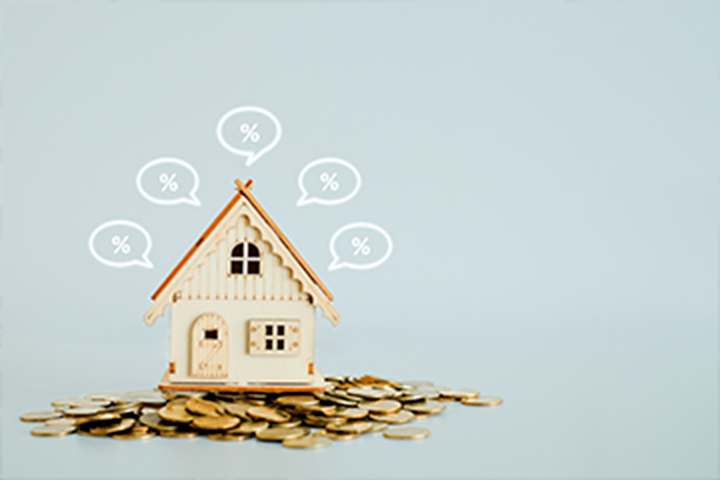Property transfer tax – how much is this tax?

Keytrade Bank
keytradebank.be
April 28, 2022
(updated September 22, 2022)
4 minutes to read
In Belgium, the buyer of a property – whether a building, a house or an apartment – usually has to pay a tax to the region in which their purchase is made. This is what is known as property transfer tax. However, an exception is made for purchases of new properties, in which case this tax may be replaced by VAT at 21%. 'New' is understood to refer to a property that has either never been occupied or has been purchased within two years of first occupancy at the most.
The amount of property transfer tax is based on the sale price and charges, with the minimum basis being the value of the property. It must be paid within four months of signing the contract for sale. The buyer may sometimes see a reduction in their taxable amount (referred to as a tax allowance) or pay a reduced rate and may also, subject to conditions, receive a refund of the property transfer tax. This tax is calculated only on the portion of the price above the amount of the tax allowance.
Rates and their reductions and conditions vary according to the region in which the owner buys their property.
In the Walloon Region, the usual rate of this tax is 12,5%.
Since 1 January 2018, the allowance on this tax has been €20,000. The new owner does not pay property transfer tax on €20,000 of the purchase of their property (resulting in a saving of €2,500). This tax advantage is subject to 8 conditions, which include the obligation to buy as a private individual, to not own another home and to live in this property for a minimum period of 3 years. The tax allowance also applies to building plots and dwellings under construction or off-plan.
As for any tax refund, this only happens in certain cases and not automatically; a refund application needs to be submitted! This procedure is also valid in Brussels. These conditions apply, for example, if the buyer resells their property within two years of their purchase. They will then be able to recover three fifths of the tax that they have paid. And if they buy a modest home with a cadastral income of up to €745, the property transfer tax will be calculated at a reduced rate of 6%.
In the Brussels-Capital Region, the usual rate of this tax is also 12.5%.
Since 1 January 2017, the allowance has been €175,000. In other words, you do not pay any property transfer tax on the first €175,000 of the purchase of your property (resulting in a saving of €21,875) subject to 10 conditions, including the obligation to buy as a private individual, to not own another home and that the value of the property does not exceed €500,000.
If the purchase concerns a building plot, the amount of the allowance is halved. The owner will therefore no longer pay property transfer tax on the first €87,500 of their purchase, resulting in a tax saving of €10,937.50. Furthermore, the maximum price not to be exceeded will be €250,000 instead of €500,000.
As for any tax refund, this only happens in certain cases. For example, if the buyer resells their property within two years, they may receive a refund and recover, in Brussels, 36% of the tax paid at the point of purchase.
In the Flemish Region, a rate of 3% has applied since 1 January 2022 to any purchase of a house to be used as a family home. For other property, such as land or a second home, the rate is 12%.
The flat-rate reduction (former allowance) is €5,600 subject to 9 conditions, including the obligation to buy as a private individual, to not own another home and that the value of the property does not exceed €220,000. As for any tax refund, there is a system for the the 'carry-over' of property transfer tax. In fact, in some cases, the tax paid on the first purchase of a family home can be deducted from the tax payable on the purchase of a new primary residence. The buyer will only pay the difference between the two amounts. However, the total amount of this tax benefit must be less than €13,000. This 'carry-over' of property transfer tax is extinguishing gradually to be completely disappear from 1 January 2024 onwards.
Nothing is simple in Belgium and this is undoubtedly the case with taxation, which is often organised on a regional basis. The aforementioned conditions for allowances or refunds of these taxes are not exhaustive. So if you decide to purchase a property do not hesitate to seek advice from your notary, who is the best person to provide you with all the necessary information.


